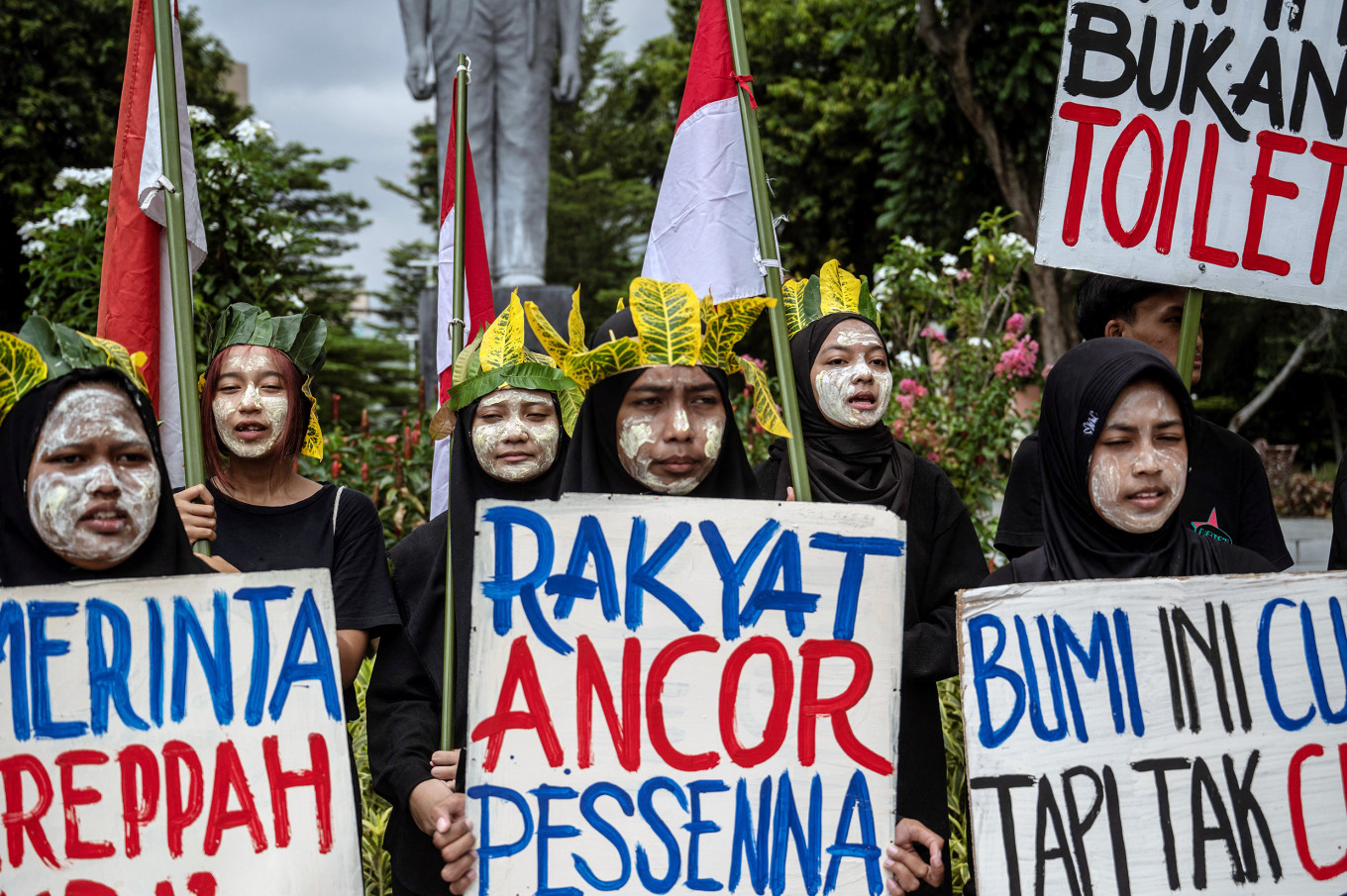Popular Reads
Top Results
Can't find what you're looking for?
View all search resultsPopular Reads
Top Results
Can't find what you're looking for?
View all search resultsHealth in loss and damage: Responsibility with accountability
Our governments need to step up their response to the climate crisis, showing leadership and providing pathways for developed nations to work hand in hand with them to support mitigation, adaptation and amelioration measures.
Change text size
Gift Premium Articles
to Anyone
T
he consequences of climate change are all too clear to us. Floods are an increasingly regular occurrence across the region and the planet. North Jakarta is slowly but inexorably sinking beneath the waves, with Ho Chi Minh City, Bangkok and Manila – to name just a few – also under threat from rising sea levels.
The mercury hit 40 degrees Celsius in the United Kingdom last summer and forest fires are now a year-round TV spectacle, pumping gigatons of carbon into the atmosphere. The ice caps at the poles are thinner than ever before in human history and we are moving ever closer to the 1.5-degree Celsius tipping point – one of many that await us.
So, who is to blame? It’s easy to point the finger at the human race collectively – but it’s not that simple. While the consequences of climate change are a global issue, the responsibility for the release of the majority of carbon into the atmosphere is largely the responsibility of developed nations, who have historically been the biggest contributors to greenhouse gas emissions.
One of the areas where this responsibility is most evident is in the realm of health in loss and damage, particularly in Southeast Asia.
The term “loss and damage” refers to the negative impacts of climate change that are beyond the capacity of a community or nation to adapt to or mitigate. For example, climate change is causing a rise in sea levels, threatening Southeast Asia's coastal communities, which are already experiencing its effects, including saltwater intrusion into freshwater supplies, flooding, and erosion.
These impacts are affecting the physical health of communities, causing mental and economic anguish and increasingly leading to displacement and social disruption. The region's high population density and reliance on coastal ecosystems exacerbate this situation.
Added to this is the increase in extreme weather events like typhoons, floods, and droughts which cause physical damage, economic losses and exacerbate health issues. For example, floods and droughts lead to crop failures, food shortages, and malnutrition, which generates a range of health issues, including stunted growth and development, weakened immune systems, and an increased risk of disease.
The responsibility for addressing these impacts lies, of course, with the elected representatives of these nations. But there is also a significant role that must be played by developed nations, who have contributed the most to global greenhouse gas emissions.
Quantifying this responsibility is not a straightforward process. While some countries, such as the United States and European Union, have historically been the largest emitters, others, such as China and India, have recently overtaken them in terms of annual emissions.
The divergence of views on allocation of responsibility and therefore burden of reparations has been a highly contentious issue across the now three-decade-long negotiations under the UN Framework Convention on Climate Change (UNFCCC).
It's also worth remembering that emissions are not the only factor to consider when quantifying responsibility. Developed nations also should support developing nations in adapting to the impacts of climate change through financial and technological assistance, as well as knowledge sharing and capacity building.
One approach is through the principle of "fair share" by the UNFCCC. This principle is closely connected to the concept of equity, which means each country should take responsibility for its fair share of the effort to address climate change. Under the fair share principle, countries with greater historical emissions responsibility and capacity to address the crisis should provide financial and technical assistance to developing countries that are on the front line of experiencing loss and damage.
At the root of quantifying responsibility is the concept of "climate justice". Climate justice recognizes that climate change disproportionately affects vulnerable people and populations, who are almost without exception the least responsible for greenhouse gas emissions. Developed nations have a responsibility to ensure that vulnerable populations receive the support they need to adapt to the impacts of climate change and to prevent further emissions.
Regardless of the approach taken and recognizing the complexities that surround the allocation of responsibility and the political questions this opens up; it is our view that developed nations must take responsibility for mitigating and adapting to the impacts of climate change. At the same time, our governments need to step up their response to the climate crisis, showing leadership and providing pathways for developed nations to work hand in hand with them to support mitigation, adaptation and amelioration measures.
One promising solution is the establishment of the new "loss and damage fund" at COP28 last year. This fund, to be largely financed by developed nations and used to support vulnerable communities in adapting to the impacts of climate change is a significant step in the right direction. Working out how it can deliver on its promise rapidly and comprehensively is the next challenge for developed and developing countries alike.
What is clear is that we are running out of time. Failure on the part of developed nations to play their part will increase global impacts of climate change. Everything is connected – except, perhaps, us. We need to change this so that, through acceptance of responsibility, we are able to work together to build a climate-resilient planet.
***
Jemilah Mahmood, a physician and experienced crisis leader, is the executive director of the Sunway Centre for Planetary Health at Sunway University, Malaysia. Ramon San Pascual, executive director of Health Care Without Harm Asia and former executive director of the Asian Forum of Parliamentarians on Population and Development.










